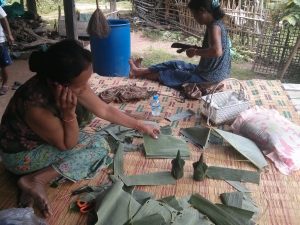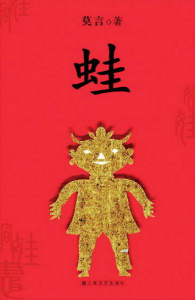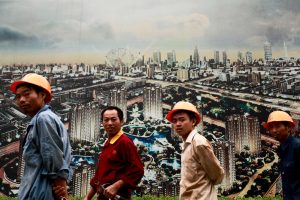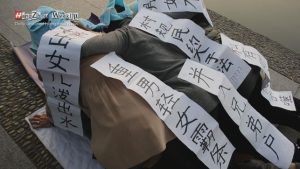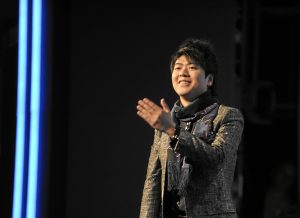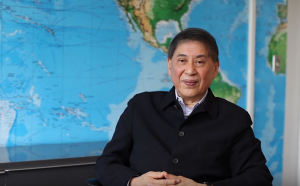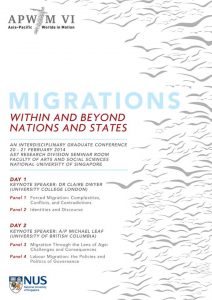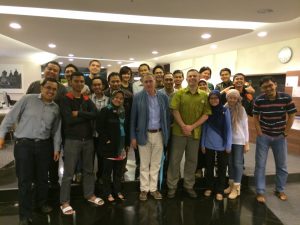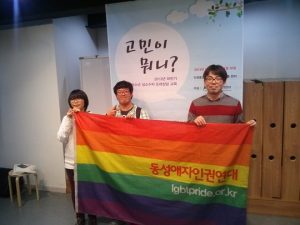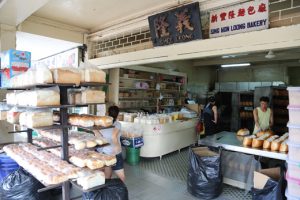Where are the voices and the interests of rural Lao women in ASEAN?
Memo #356 By Carly Teng – c.teng [at] alumni.ubc.ca The primary focus of ASEAN has been on economic development, with some attempts since 2014 to include “women’s economic empowerment” through support of female entrepreneurship in its member countries. ASEAN’s recognition of the need for women’s economic empowerment is necessary, but not sufficient to advance women’s rights, especially […]
Spawn of China’s One-Child Policy
Memo #347 By: Christopher Rea – chris.rea [at] ubc.ca China’s One-Child Policy became, on October 29th, a two-child policy. The Policy was originally enacted to slow population growth, conserve resources, and ameliorate poverty; its actual results since 1979 have been well documented. One of its many unexpected effects was to inspire Mo Yan’s 2009 novel […]
Urbanized Interfaces: Chinese Visual Arts in the Age of Urbanization
Memo #346 By: Meiqin Wang – meiqin.wang [at] csun.edu and Minna Valjakka – minna.valjakka [at] helsinki.fi Interconnectedness between visual arts and urbanization defines the recent development of Chinese visual arts China’s massive urbanization in the past two decades has had a far-reaching impact on the practices of visual arts. These repercussions are evident in agencies, subject matters, themes, styles of […]
Gender question: Toward an egalitarian society in urban China?
Memo #344 By: Julie Remoiville – julie.remoiville [at] gmail.com The “International conference on gender equality and institutional social responsibility,” organized by UN Women, takes place October 22-23, 2015 in Hangzhou, the capital of Zhejiang province in China, and the fourth-largest metropolitan area in the country. Considering the substantial efforts invested by the Chinese state to improve […]
Music for the Mind? Virtuosity and Performativity in Celebrity Diplomacy
Memo #314 By Hyung-Gu Lynn – hlynn [at] mail.ubc.ca Does celebrity diplomacy work? If so, based on what measures, why, how and for whom? In the afterglow of bravura passages powerful yet precise, arpeggios determined yet delicate, these questions arose, at least in one small corner of my brain. The United Nations Day concert in the General […]
My Father and the Republic: A Talk with Novelist, Dramatist, and Historian Pai Hsien-yung (Video Interview)
Memo #298 Last fall the Asia Pacific Memo sat down with Pai Hsien-yung (Bai Xianyong 白先勇), the renowned novelist and son of Pai Chung-hsi (Bai Chongxi 白崇禧, 1893–1966), a gifted general and strategist, key Kuomintang leader, and close associate of Chiang Kai-shek, with whom he had a long and stormy relationship. While Pai Hsien-yung is a worthy subject […]
Third Culture Kids and the Rise of a Cosmopolitan Ethos in the Asia-Pacific
Memo #289 By Grégoire Legault – gregoire.legault [at] alumni.ubc.ca The world is changing, thanks in great part to unparalleled levels of migration. According to the United Nations, more than 230 million people were living outside of their countries of birth in 2013, many of them originally born in Asia. Conceptually, foreign-born residents of third countries already […]
Voices from Indonesia’s Rising Policy Elites: a Confident, Flexible, and Creative Indonesia
Memo #275 By Yves Tiberghien – yves.tiberghien [at] ubc.ca Asia is in the midst of a great uplift, but also great social change and geopolitical transformation. In the midst of China’s rise, China-Japan tensions, India’s new voice, and the US pivot, how are Indonesians thinking and planning? Indonesia is only slowly waking up to its […]
To Be Queer and Christian: Organizing for Queer Youth in Korea
Memo #270 By Joseph Yi – joyichicago [at] yahoo.com & Daniel Payne – koreanrainbow [at] gmail.com South Korea has among the highest rates of suicide among developed (OECD) countries, peaking at 28.4 per 100,000 people in 2011. Hidden among these tragedies are LGBTQ (Lesbian, Gay, Bisexual, Transgender, Queer), whose sexuality is often rejected by Korean […]
Intangible but not Insignificant: The Importance of Safeguarding Cultural Heritage
Memo #264 By Sharon Lim – sharon.lim [at] alumni.ubc.ca In 2010, Old Places was the highest-rated documentary on Singaporean television. This speaks to the appeal of Royston Tan’s documentary—structured around the reminiscences of ordinary Singaporeans, with on-screen images of places and material objects that they feel are slowly disappearing from the Singaporean cityscape. Narrators share […]
